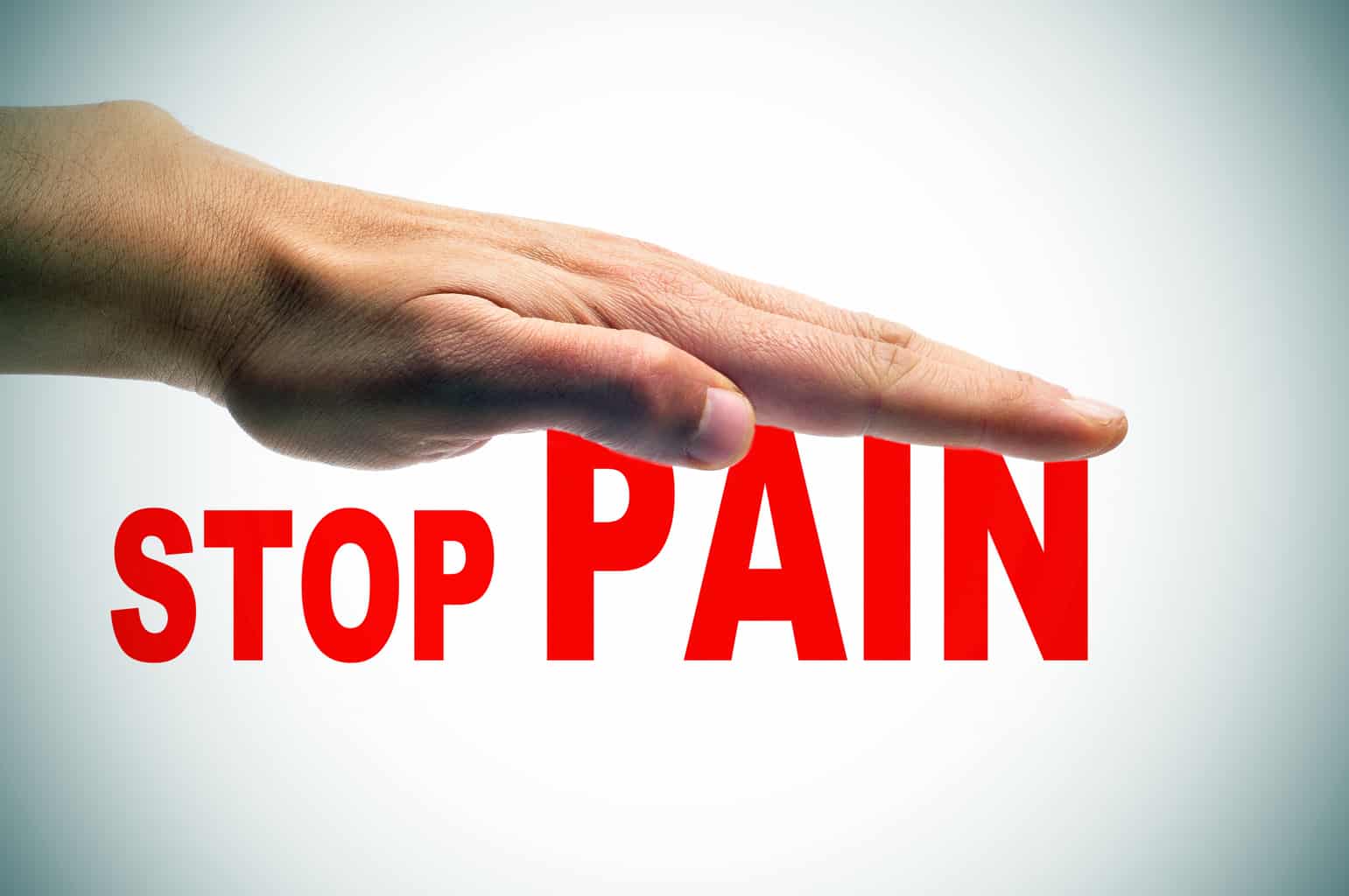
[cmamad id=”19668″ align=”center” tabid=”display-desktop” mobid=”display-desktop” stg=””]
And unlike opiates, it’s not addictive, harmful, or dangerous…
—————–
This Vitamin Gets Rid of Pain for Good
When asked about “the best way to reduce pain,” most people would respond with the answer “opiates.”
While this is almost certainly the most correct answer, opiates have serious side effects.
Although safe at the correct dose, opiates are very habit-forming and should only be used sporadically.
Other people might answer “NSAIDs” (such as aspirin and ibuprofen).
Drugs in this class are all cyclooxygenase inhibitors.
They reliably reduce pain by blocking the synthesis of prostaglandins E1 and E2 – which cause pain directly.
But very few people know that vitamin B12 (cobalamin) reduces pain.
As unbelievable as this sounds, vitamin B12 has also been shown time and again to be more effective than NSAIDs.
“Since 1950…in some countries vitamin B12 has been regarded as a painkilling vitamin. Only one of the 94 published clinical trials fails to point to this conclusion…”
And vitamin B12 even potentiates the effect of opiates…
That means a person can take less of their opiates to get the same effect if they are also using vitamin B12.
Vitamin B12 also has very low toxicity, making it safe at essentially any dose level.
Certain types of bacteria in our intestines produce vitamin B12 naturally, so our bodies have evolved to deal with this molecule.
Many people are probably skeptical that a simple vitamin could have such powerful effects on pain… But here are a few studies that prove it directly:

Pain studies using mice and rats are normally relatively simple – they usually involve either a hot plate or a tail pinch test.
However, this study was a bit more advanced:
These scientists used spinal nerve ligation, a procedure that causes constant pain in all mice/rats not taking drugs.
[cmamad id=”19669″ align=”center” tabid=”display-desktop” mobid=”display-desktop” stg=””]
They compared the pain-killing effects of Diclofenac™ (a powerful cyclooxygenase inhibitor) against graded doses of vitamin B12.
Vitamin B12 was far more effective at the same dose level, even when given at doses six times lower:
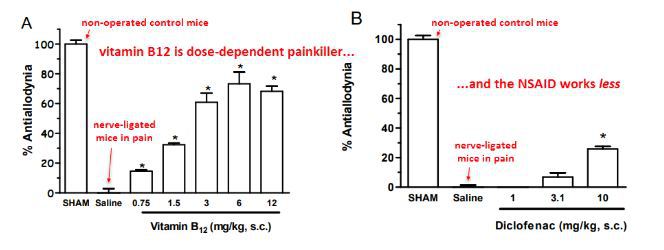
Vitamin B12 caused a strong dose-dependent reduction in pain, approaching the level seen in the pain-free control mice.
So this is obviously a very powerful vitamin… It is in rodents at least.
But does it also work in humans? And does it also work using a smaller dose level?
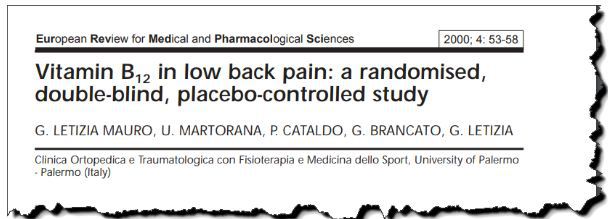
This study used humans and a smaller dose of B12.
The researchers gave the participants injections of 1,000 mg of vitamin B12 per day.
These patients had lower back pain severe enough to have visited a medical doctor.
Another group of patients was randomized to serve as controls and they did not receive vitamin B12 or anything else.
The study quantified pain by using a method of self-assessment:
Each participant received a graded ruler with a slide bar which they throttled to their perceived pain level.
And the vitamin B12 group reported a lower perception of pain:
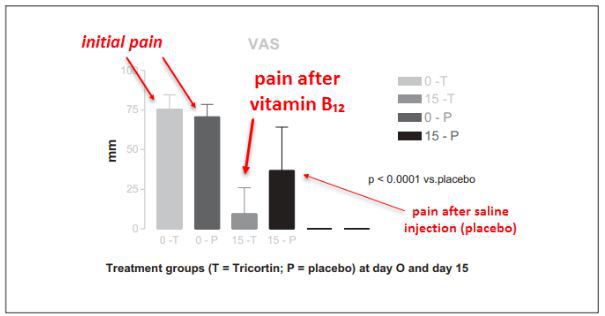
This was a double-blind study, so there’s no reason to assume that this isn’t a legitimate result.
In fact, most studies show the exact same result.
But this study used a relatively high dose – injected straight into the area of pain.
So does this work in humans using even lower doses?
And what about when the doses are administered far from the actual site of pain?
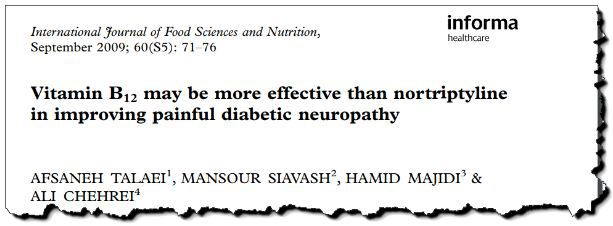
In this study, the researchers gave the participants doses of only 2,000 μg twice a week – amounts similar to what you would find in many supplements.
As a comparison, they used the standard drug that is routinely prescribed for this type of pain, nortriptyline.
So this study compared B12 AGAINST another painkiller.
Just as with over 95% of studies examining this topic, the vitamin B12 group showed a significant reduction in pain…
And the reduction was even greater than in the nortriptyline group:
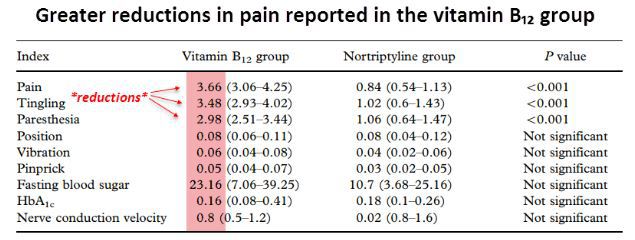
Although this study was single-blind only, there’s no reason to assume the patients would bias their pain response towards the vitamin and not to the drug.
So how does vitamin B12 work?
Well, the authors of this study tried to explain it in two ways, based on its classic effects:
“These effects of vitamin B12 could be due to a decrease in serum homocysteine.”
Homocysteine is always increased so reliably in vitamin B12 deficiency that (along with methylmalonic acid) it’s used as an indicator to diagnose it.
It is a unique molecule in that it can form a stable free radical that can also cross the blood-brain barrier.
Homocysteine levels have been shown to strongly parallel lipid peroxidation markers in the cerebrospinal fluid…
And it is commonly associated with dementia.
As a free radical, homocysteine would likely increase the production of superoxide – a molecule so correlated with pain that it deserves mention.
The researchers also tried to explain the effect of vitamin B12 through the production of odd-numbered fatty acids…
Besides the fact that there is no logical reason to assume this would cause pain, the odd-numbered fatty acids are actually considered to be a positive biomarker (they’re higher in grass-fed dairy, for example).
What is never mentioned is the fact that methane (a general anesthetic) can be liberated by vitamin B12’s central cobalt atom.
While vitamin B12 is well-known to transfer methyl groups, not many people realize that it can also emit these bound methyl groups as methane gas.
But… How does vitamin B12 compare to opiates?

This study, using rats, compared vitamin B12 directly to morphine itself – the gold standard in pain research.
They quantified pain using the cruel hot plate method.
But they used a dose that was small (even for rats) and even smaller than the morphine dose they used.
Although it would be interesting to know how B12 and morphine would compare directly, gram for gram, I don’t know if that will ever happen…
But, even despite the smaller dose, B12 caused a significant reduction in pain.
Also, vitamin B12 actually potentiated the effect of morphine.
Again, that means you need less of the morphine for it to be effective.
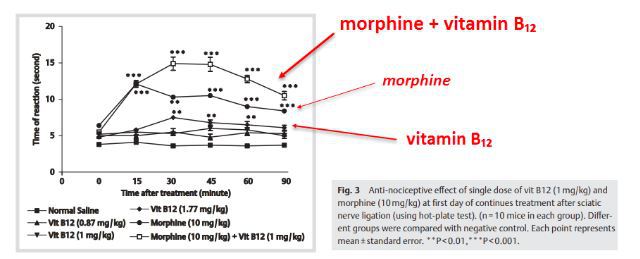
This is important, because most drugs, such as NSAIDs, have absolutely no noticeable effect when used along with morphine.
The exact chemical mechanism through which morphine reduces pain is somewhat mysterious…
Morphine does not seem to act through the nitric oxide pathway like most other painkillers.
So perhaps vitamin B12 is directly involved in the morphine-induced analgesia…
Maybe it does this by producing methane gas, instead of nitric/nitrous oxide gases like the other painkillers do…
Regardless of exactly how it works, Vitamin B12 does work.
That is undeniable.
Vitamin B12 is considered by researchers to be the only “painkilling vitamin” worth considering…
And it is definitely non-toxic enough to take at any practical dose.
besides that, vitamin B12 is also necessary to keep homocysteine levels in range – and for transferring methyl groups.
This vitamin should be safe for nearly anyone…
(But as this could increase polyamine synthesis by regenerating methionine, people with cancer should use it with caution.)
—–Important Message—–
The morning shake that can fix blood pressure…
Simple to make, with ingredients you probably already have in your kitchen…
It tastes good, costs next to nothing, and normalizes blood pressure naturally…
But the best part? It does something even better for the penis…

—————–


Leave a Reply